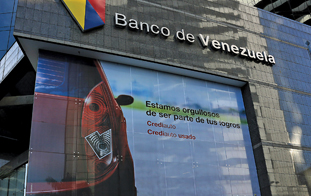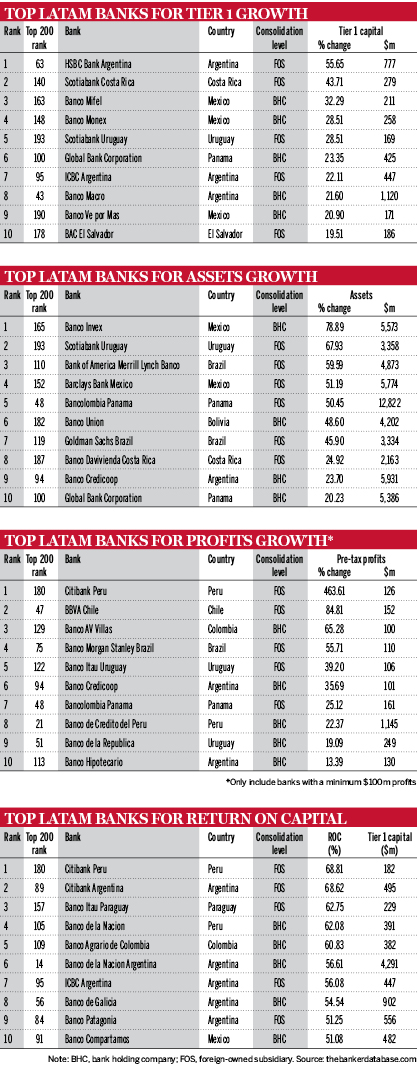Top 200 Latin American Banks 2016: Brazil endures while Venezuelan banks beat the odds
Brazil is still the leading country in Latin America when it comes to the might of the region's banking sectors, but further down the table the overall picture is obscured by the crisis in Venezuela. Silvia Pavoni reports.
Brazil’s recession and widespread corruption scandals have not affected its position as Latin America’s largest banking market. Whether by aggregate Tier 1 capital or assets, the country overshadows its peers by a wide margin.
But while big Brazilian banks are still safely at the top of The Banker’s Top 200 Latin American Banks ranking, their shrinking Tier 1 capital has cast their future as regional leaders into doubt. Only last year, all of Brazil’s top five lenders cut about one-third off their Tier 1 capital, at rates ranging from 28.52% (Itaú Unibanco) to 38.42% (Santander Brasil).
Downward movement is evident elsewhere in the ranking too, where, as a whole, the region’s Tier 1 capital landscape is uneven, with alternating highs and lows. This is symptomatic of Latin America’s mixed fortunes, with most banks succumbing to the downward trend of the surrounding macroeconomic environment. Alongside Brazil’s difficulties, Mexico has grown at a mediocre pace and struggled with the execution of its ambitious reforms. More orthodox and export-oriented economies such as Chile and Peru have suffered because of global conditions, while the newly market-friendly Argentina is still in poor health.
Mixed picture
As always, the banks are sharing the fate of their corporate and retail clients and, for the most part, this year’s ranking reflects macroeconomic trends. There are exceptions, due in some cases to banks’ individual abilities and market specialisation, or particular circumstances, such in the case of Venezuela, on the verge of default and mired in humanitarian crisis. The country’s two largest lenders, Banesco Banco Universal and Banco de Venezuela, occupy sixth and seventh positions in the ranking and display exceptional Tier 1 capital growth of 80.49% and 129.40%, respectively. Other Venezuelan names further down the table perform strongly.
Analysing the country’s banks is problematic because of the discrepancy between the most commonly used official exchange rate and the unofficial rate, and because of the country’s raging inflation, estimated at 1000%, which obscures lenders’ size and profitability. See page 90 for an analysis of Venezuela’s banking sector. [LINK to Venezuela article] Thanks to such anomalies, the country’s banks have been removed from the tables that rank growth of Tier 1 capital, assets and pre-tax profits as well as return on equity and return on assets. This makes room for lenders from more transparent markets to come to the fore.
HSBC Bank Argentina tops the Tier 1 capital growth list with 55.56%. One of the first measures announced by the country's current government at the end of 2015 was to unify its exchange rate system to eliminate the unofficial market, something that boosts investor appeal and provides analysts with a clearer picture. Two other Argentinian banks make the Tier 1 capital list: ICBC Argentina, the Chinese lender’s operations in the country, and locally owned Banco Macro, which are in seventh and eighth places, respectively. There is more on Argentina on page 76. [LINK to Argentina article]
The asset growth table is led by Mexico’s Banco Invex with 78.89%. This makes the bank an outlier among Mexican lenders, almost half of whom saw assets shrink in 2015 and most of whom took a cut in Tier 1 capital.
The pre-tax profits growth and return on equity tables are both led by Citibank Peru, which has reported a pre-tax profits growth of 463.61%. A microfinance lender and a credit card specialist top the return on assets table: Mexico’s Banco Compartamos and American Express Bank Mexico are in first and second place, respectively.




